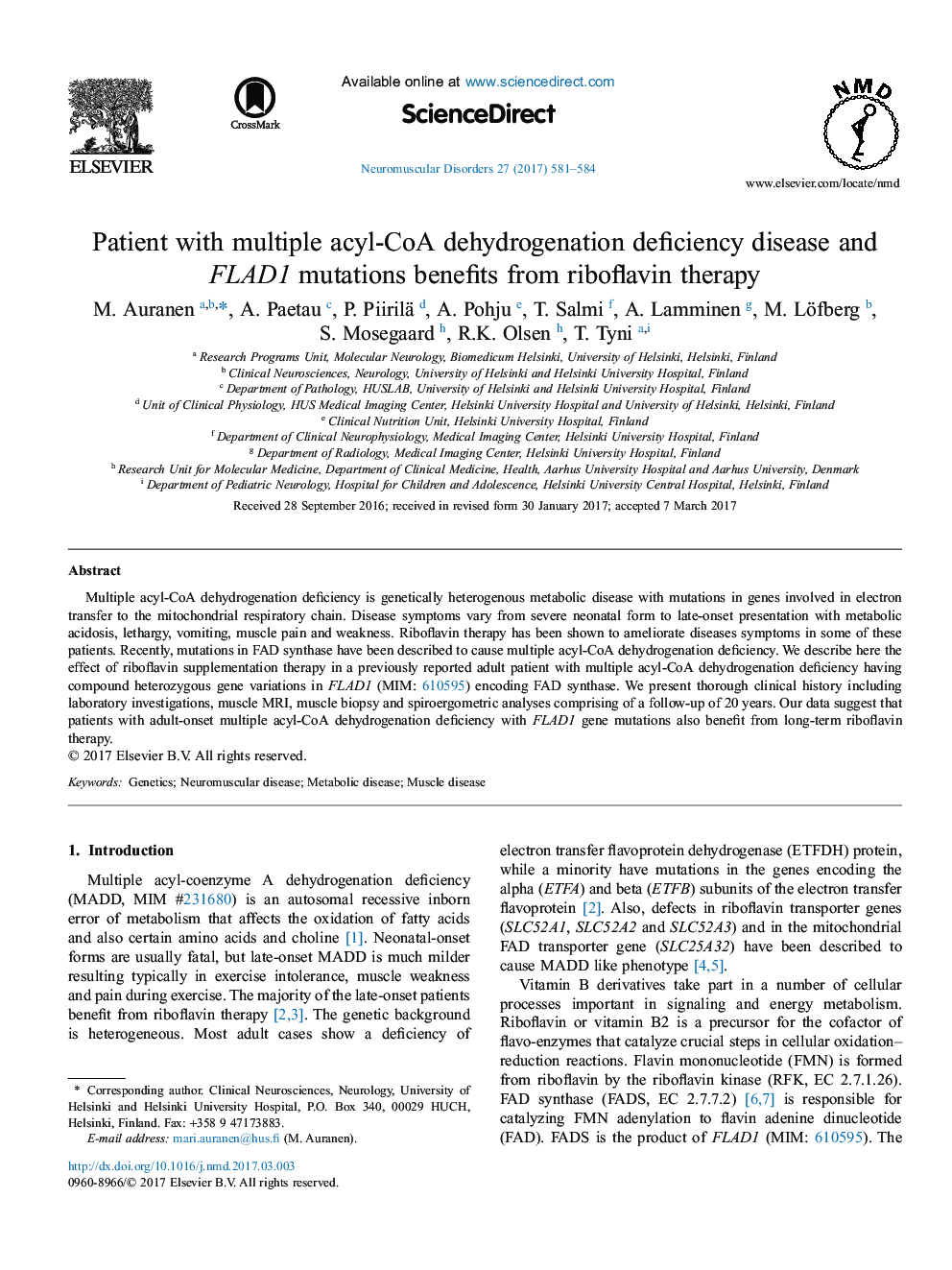| Article ID | Journal | Published Year | Pages | File Type |
|---|---|---|---|---|
| 5632035 | Neuromuscular Disorders | 2017 | 4 Pages |
â¢FLAD1 gene mutations cause multiple acyl-CoA dehydrogenation deficiency.â¢Patients with FLAD1 gene mutations benefit from dietary and riboflavin therapy.â¢Riboflavin supplementation prevents abnormal excretion of metabolites in the urine.
Multiple acyl-CoA dehydrogenation deficiency is genetically heterogenous metabolic disease with mutations in genes involved in electron transfer to the mitochondrial respiratory chain. Disease symptoms vary from severe neonatal form to late-onset presentation with metabolic acidosis, lethargy, vomiting, muscle pain and weakness. Riboflavin therapy has been shown to ameliorate diseases symptoms in some of these patients. Recently, mutations in FAD synthase have been described to cause multiple acyl-CoA dehydrogenation deficiency. We describe here the effect of riboflavin supplementation therapy in a previously reported adult patient with multiple acyl-CoA dehydrogenation deficiency having compound heterozygous gene variations in FLAD1 (MIM: 610595) encoding FAD synthase. We present thorough clinical history including laboratory investigations, muscle MRI, muscle biopsy and spiroergometric analyses comprising of a follow-up of 20 years. Our data suggest that patients with adult-onset multiple acyl-CoA dehydrogenation deficiency with FLAD1 gene mutations also benefit from long-term riboflavin therapy.
